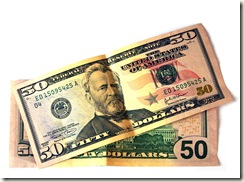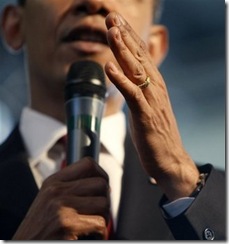
Recently, I was reading a blog post about the fact that checks coming from the IRS for the CARE act were delayed going out because President Trump wanted to put his name on them. They covered the fact that first he wanted it signed by him, but that’s not allowed, so he settled for having it in the memo field. This caused a delay.
Ann Althouse took this and ran with the whole comparing this with Jesus telling the disciples to render to Caesar what is Caesar’s and unto God what is God’s, but the last part of the post had me… something I’d never thought of either:
Writing this update, I thought of a question that had never occurred to me before: When did people first have bank accounts? Was Jesus speaking in a context where people kept all their money in coin form?
“The decision to have the paper checks bear Trump’s name, in the works for weeks, according to a Treasury official, was announced early Tuesday to the IRS’s information technology team.” – Althouse
Now, at first blush we’d tend to think no– they all had their money at home somewhere safe, maybe buried under a rock. Or maybe they had precious little money like we’re lead to believe in movies like The Nativity Story. Obviously they had physical money– but they also had physical money in the old west. Just because they didn’t have electricity and computers doesn’t mean that they didn’t have banking.
And it turns out, with a little bit of research we see that banking has been around for over 4,000 years:
The history begins with the first prototype banks of merchants of the ancient world, which made grain loans to farmers and traders who carried goods between cities. This began around 2000 BC in Assyria and Babylonia. Later, in ancient Greece and during the Roman Empire, lenders based in temples made loans and added two important innovations: they accepted deposits and changed money. Archaeology from this period in ancient China and India also shows evidence of money lending activity.
History of Banking – Infogalactic
And this makes sense. We see that one of the things that Jesus does on earth is to throw out the money changers– the bankers– out of the temple. We know that these money changers were ones that would accept one currency in exchange for another currency to be used in the temple. Since all banking is the process of giving someone else a loan of their money, this is primitive banking.
But there’s more. Luke 7:41 tells us the story of the two people that owed money to the money lender. Matthew 25 tells us the story of the man that left his money to some servants, and upon his return he tells the last servant that instead of burying the money in the ground, he should have at least given it to the money lenders so he could have earned interest.
So while I don’t think I believe that every person had a bank account like they do today, banks were definitely a thing in the time of Jesus and before.
And to answer my question, I would think that Matthew, being a tax collector by trade, probably had a bank account.
